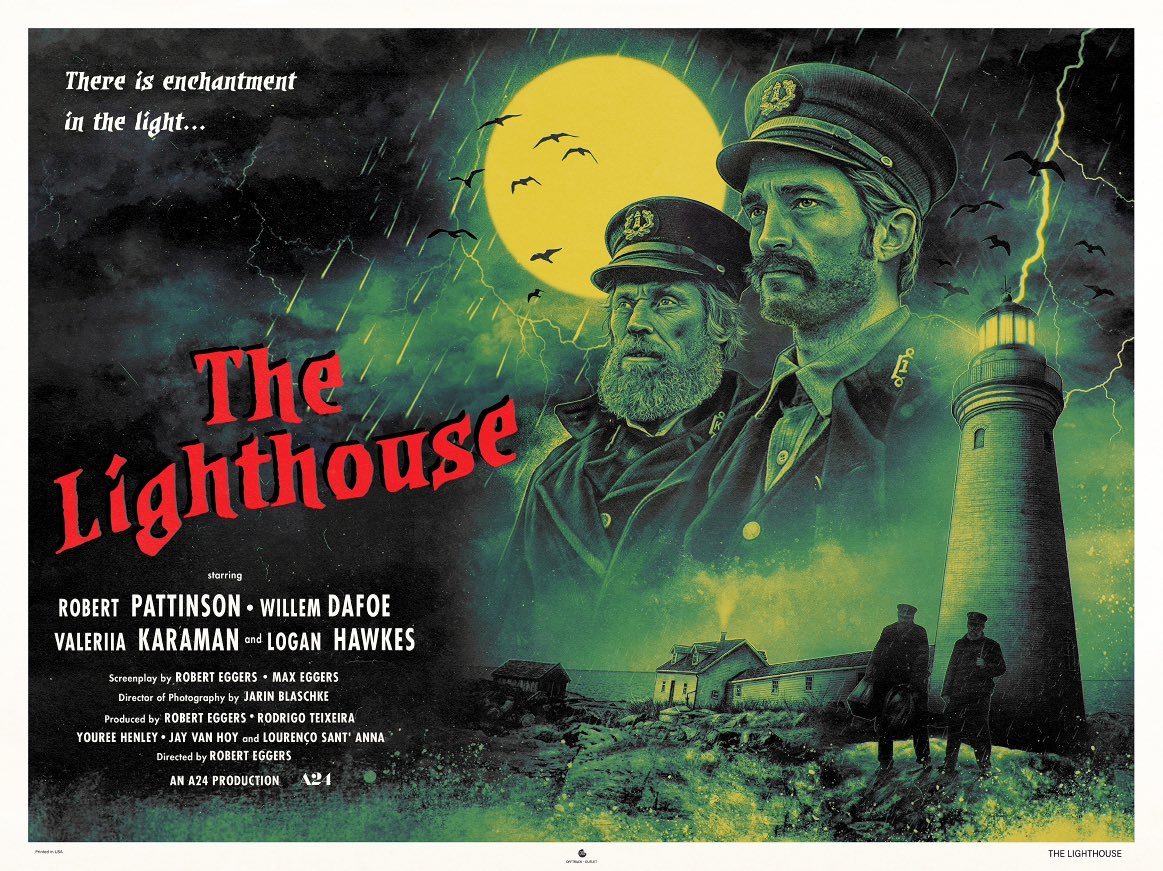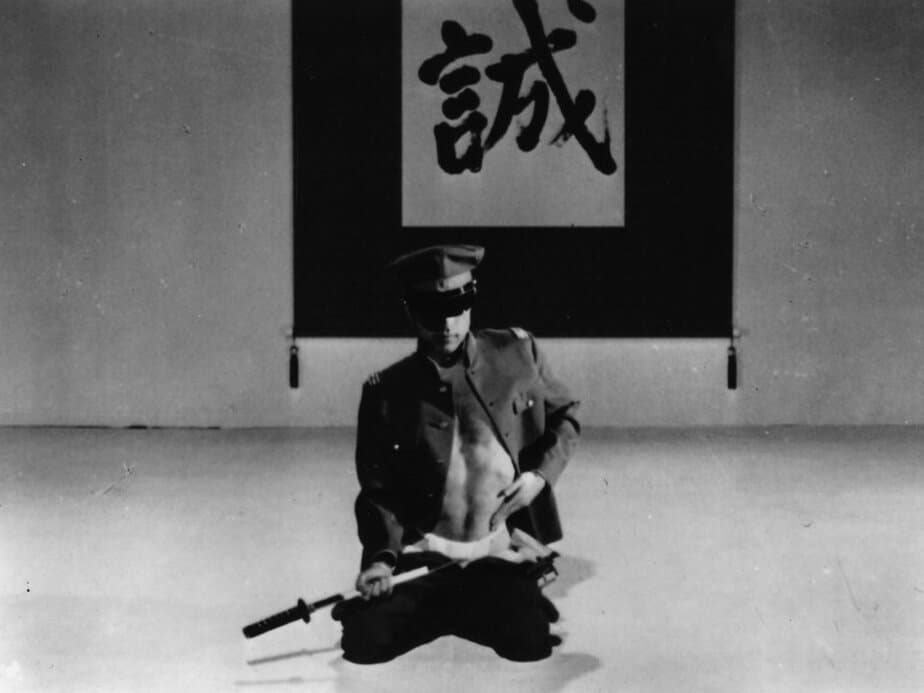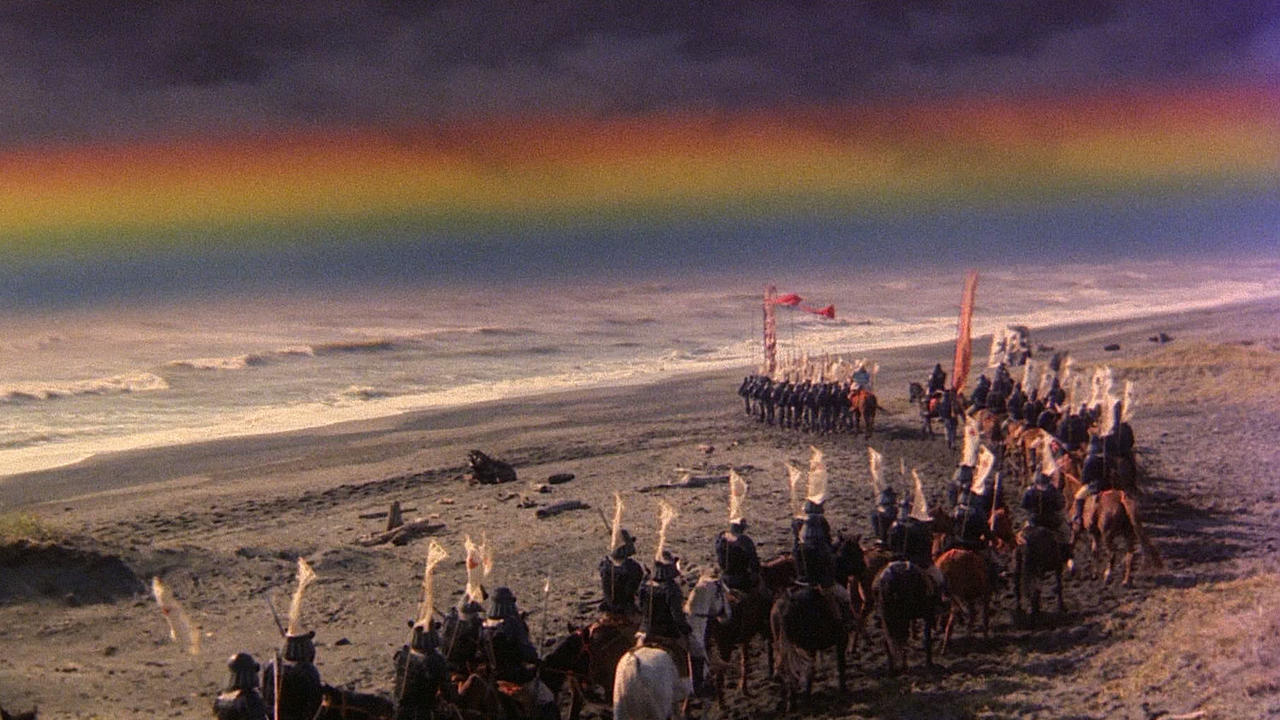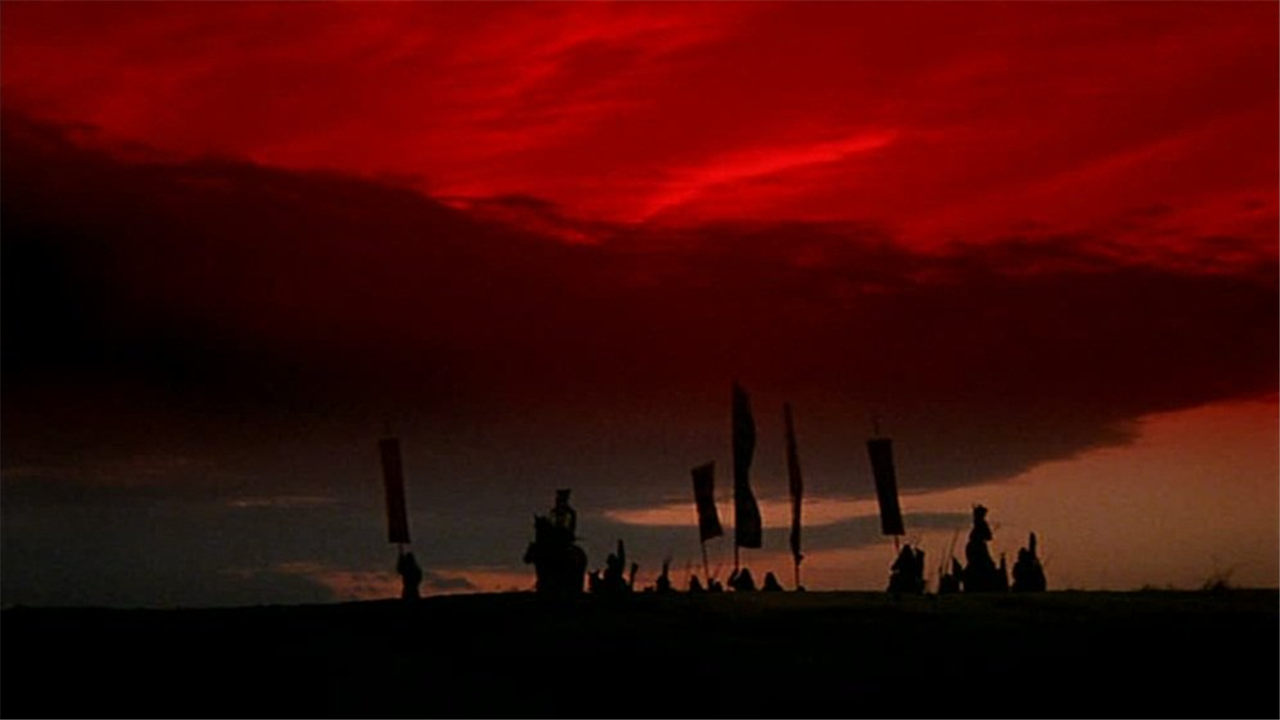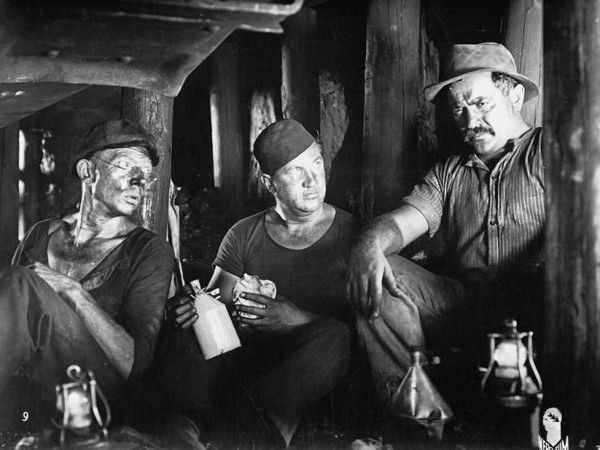Kagemusha (1980)
Finally got round to this......
and damn was it incredible!
Lets not go a second further without mentioning how stunning the film looked visually, some absolutely gorgeous shots. You can almost tell that Kurosawa literally painted the whole thing before he got to make it for real, his talent as a visual artist comes through especially strong in this one I think. It's the framing, the angles, the use of light, the colours and everything. Especially the colours. Breathtaking visuals!
Kurosawa's painterly visuals are enhanced by the sheer scale and historical verisimilitude. It recreates this period of history in incredible detail and the battle scenes feel so authentic as a result; huge amounts of extras all wearing accurate armour, not to mention using period correct weaponry! The samurai generals carry their swords of course, but this isn't Hollywood nonsense, so we have guns and polearms being used for the actual fighting. You really love to see it. The use of muskets especially warmed my cold historian bones. Just some of the best battle scenes I have seen on film.
But I also found the narrative and themes extremely engaging - a petty thief is spared a brutal execution by agreeing to become a "double" for a powerful Daimyo (lord). When the Daimyo dies, his last wish is that his death remain a secret for three years in order to secure his clans position and stave off attacks from his enemies. Initially hesitant, the double agrees to take up the role. There is of course an external tension as to whether anyone will suspect an impostor but increasingly this double, this shadow, is fraught with internal conflict over his position. Slowly he begins to inhabit the the role of Daimyo seamlessly... he becomes extremely close with the lord's grandson (who of course believes him to be his grandfather) and gains some grudging degree of respect from the chief retainers, yet always with the caveat that he is only acting a role. The shadow is haunted - both figuratively and in his dreams - by the perceived greatness of the Lord. His commitment is further tested when he must lead the lords troops into battle against rival warlords, who are increasingly suspicious of the situation.... It's three hours long, but I didn't find that it dragged much at all.
In a high-level sense Kagemusha is an interesting psychological interrogation of the concept of a 'shadow', drawing both on Shakespearean tragedy and traditional Noh depictions of warrior ghosts. Yet this also spirals out to cover a much broader concept - in this brutal, violent period of history what are the poor soldiers that serve under these great lords actually fighting for? Perhaps they are fighting for the love of their Daimyo, who inspires and gives them courage in battle...yet in the case of an impostor, a shadow, what then? What is it that they are actually fighting, or should we say dying, for? Is it the mere
idea or is it the individual themselves? Kurosoawa obviously cannot answer these questions, but it was just brilliant how he wove all these various strands together within the historical setting of the Sengoku jidai.




